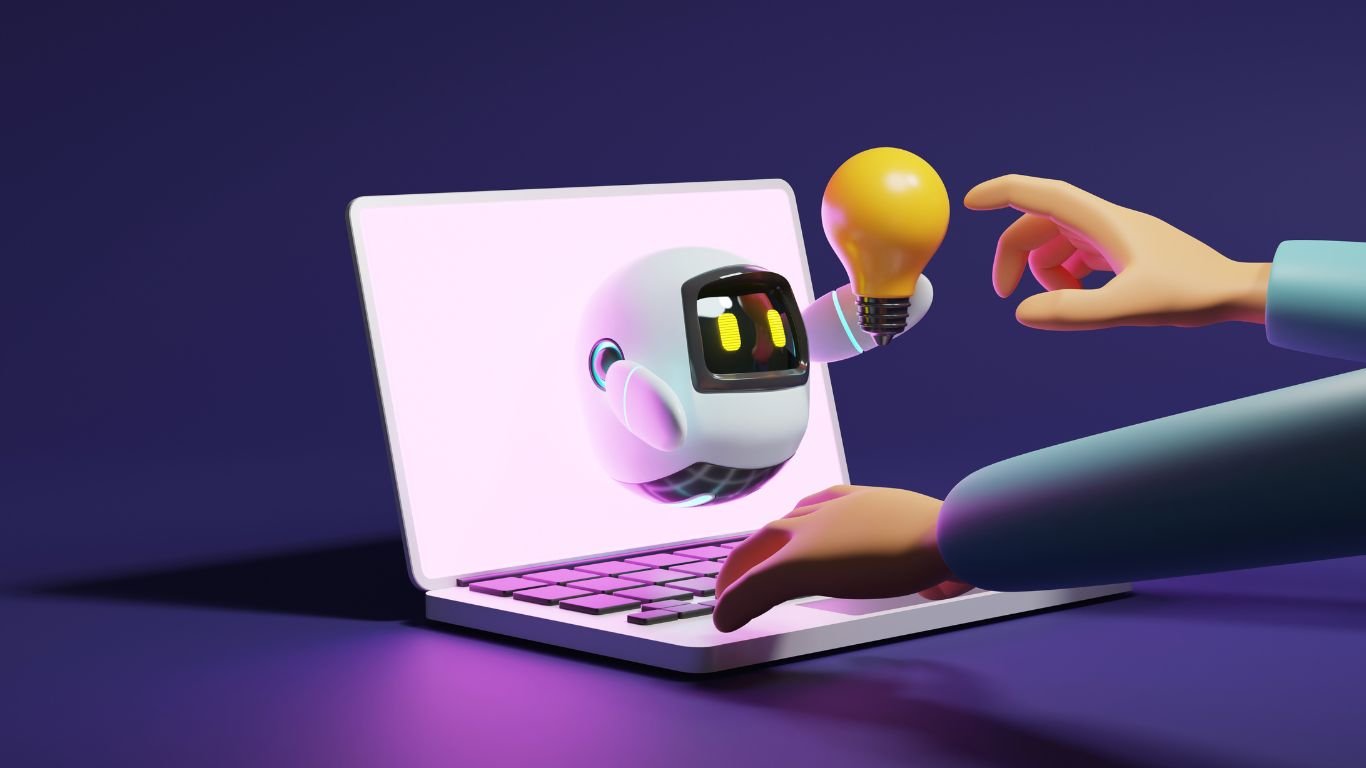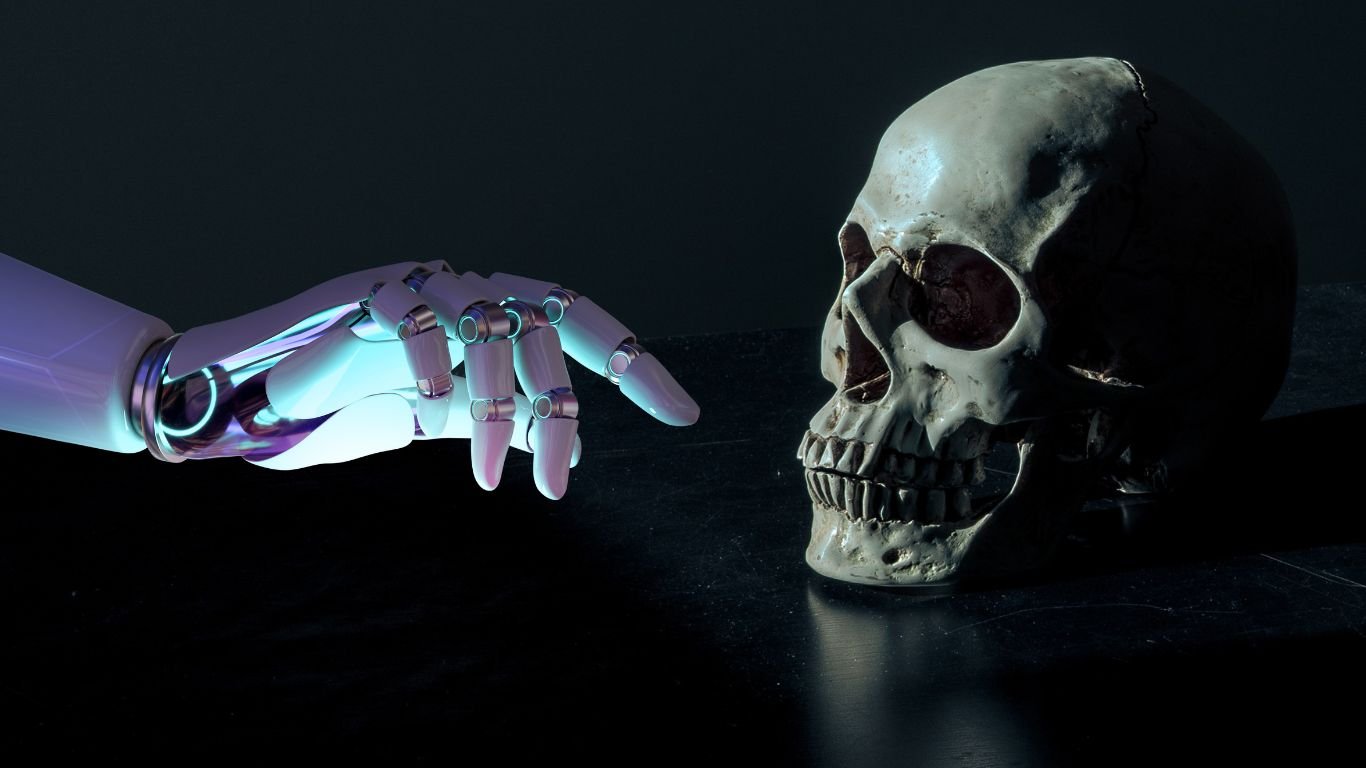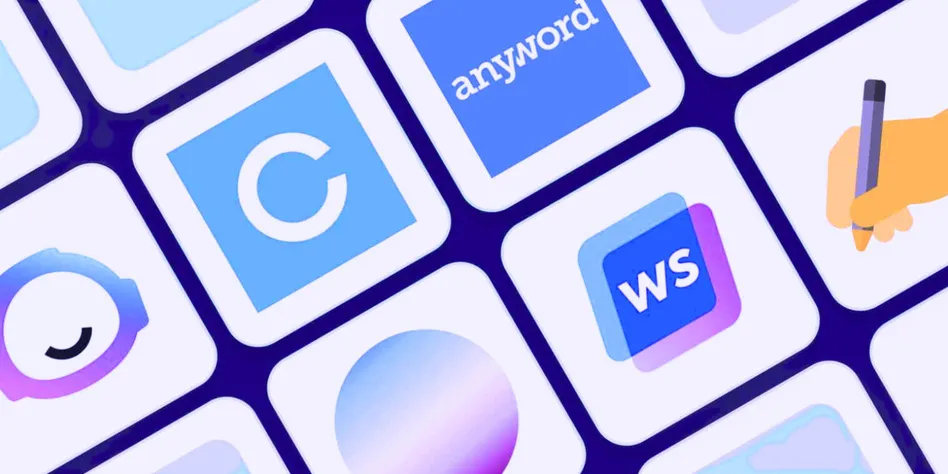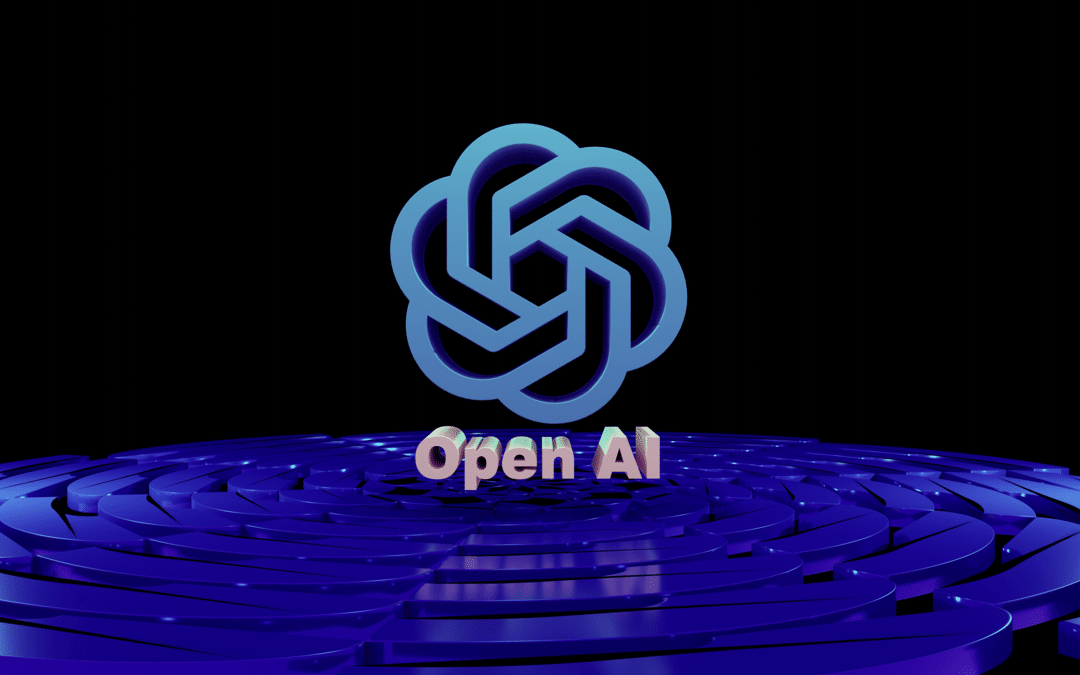- Ronald Zane
Can Artificial Intelligence Replace Human Intelligence?
Artificial intelligence (AI) has changed different ventures and had an impact on how we live and work.
It has turned into a subject of extraordinary interest and hypothesis, prompting whether or not Artificial intelligence will ultimately supplant people.
It’s the creation of intelligent machines that can do things that normally require a human brain.
From self-driving vehicles to voice colleagues like Siri and Alexa, AI is quickly turning into a piece of our day-to-day routines.
Yet, as it’s acknowledged, many wonder “Can artificial intelligence replace human intelligence?”
Let’s find out together.
“Some people call this artificial intelligence, but the reality is this technology will enhance us. So instead of artificial intelligence, I think we’ll augment our intelligence.” – Ginni Rometty
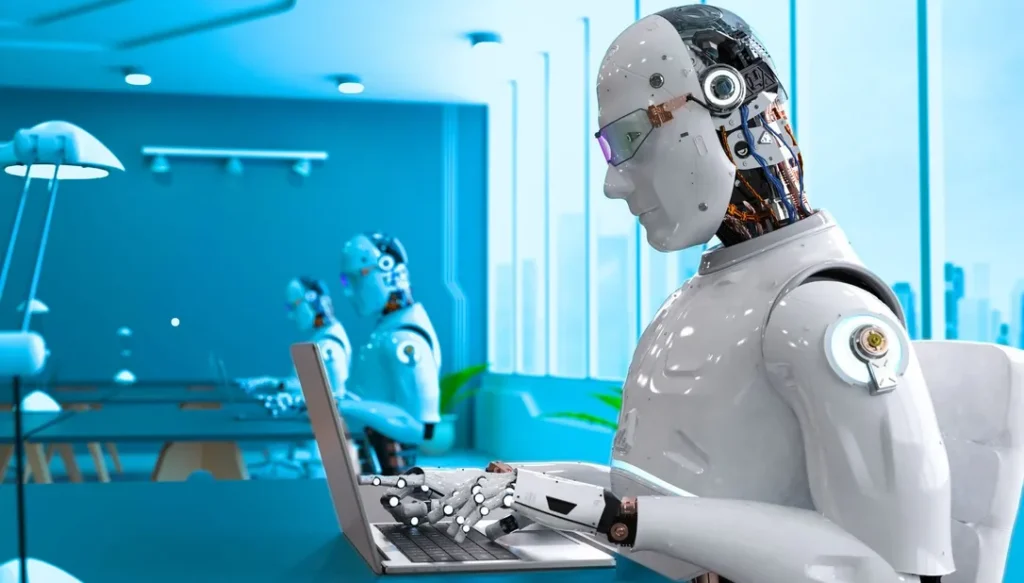
What are we talking about in this article?
Toggle- Introduction
- What is Artificial intelligence?
- The Limits of Artificial Intelligence
- The Capability of AI
- The Importance of Artificial Intelligence and Human Knowledge
- The Future of AI and Human Intelligence
- What Businesses Will Artificial Intelligence Change?
- The Possessions of Artificial Intelligence (AI) in Society
- Preparing for the Future of AI
Introduction
In this article, we will investigate the capability of artificial intelligence, its restrictions, the significance of human info, and the eventual fate of artificial intelligence and human knowledge and we will attempt to track down the responses of the following inquiries.
- Will we be replaced by AI and how long would that take?
- Will AI eventually replace humans in the workforce and other areas?
- And if so, how long would it take?
So we should go ahead to track down replies, everything being equal.
What is Artificial intelligence?
Artificial intelligence alludes to the advancement of machines that can perform assignments that ordinarily require human knowledge.
These errands incorporate discourse acknowledgment, direction, critical thinking, and picture acknowledgment.
Artificial intelligence innovation is controlled by complex calculations and information, permitting machines to learn and work on their presentation over the long run.
The Limits of Artificial Intelligence
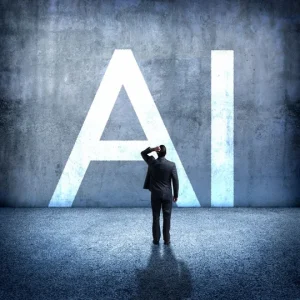
To respond to all inquiries, it is critical to comprehend what Artificial intelligence is and its cutoff points.
The creation of intelligent machines that can think, learn, and solve problems like humans is the primary focus of the artificial intelligence (AI) subfield of computer science.
It includes machine learning, natural language processing, and computer vision as subfields.
A definitive objective of computer-based intelligence is to make machines that can emulate human discernment and perform undertakings better than people.
Nonetheless, computer-based intelligence has its restrictions.
While machines succeed at errands that include design acknowledgment, information examination, and rule-based direction, they battle with assignments that require human-like imagination, sympathy, and good judgment thinking.
For instance, Artificial intelligence calculations can examine a great many clinical records to distinguish designs and analyze infections, yet they can’t give a similar degree of everyday encouragement and bedside way as a human specialist.
The Capability of AI
While artificial intelligence might have impediments, its true capacity is monstrous.
Artificial intelligence can change different ventures, further develop effectiveness, and upgrade dynamic cycles.
AI has the potential to revolutionize autonomous vehicles and traffic management systems in transportation.
In assembling, computer-based intelligence can upgrade creation lines and further develop item quality.
AI can help with disease diagnosis, medical image analysis, and personalized treatment plans in healthcare.
Virtual tutoring and personalized learning experiences made possible by AI can also revolutionize education.
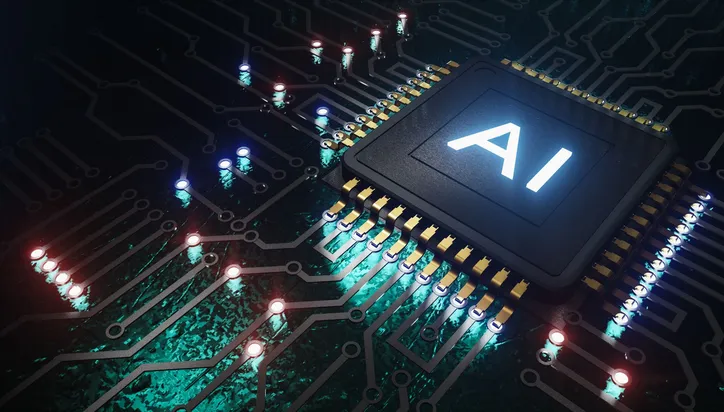
In media, artificial intelligence can robotize content creation and improve the client experience.
The use of chatbots and voice assistants by AI can also significantly enhance customer service.
The importance of human input as AI continues to advance, and the question of whether or not it will completely replace humans arises.
Numerous specialists accept that man-made intelligence will increase human insight as opposed to supplanting it.
Computer-based intelligence frameworks can improve human capacities, mechanize unremarkable assignments, and save time for additional intricate and innovative undertakings.
Simulated intelligence can go about as a useful asset, helping people settle on better choices and taking care of mind-boggling issues.
Nonetheless, it is impossible that man-made intelligence will supplant human knowledge soon.
The Importance of Artificial Intelligence and Human Knowledge
Simulated intelligence is quickly advancing, and its effect on the world is now noticeable.
It can upset different businesses, including transportation, production, medical care, instruction, media, and client support.
The Future of AI and Human Intelligence
AI has progressed significantly since its commencement.
Early artificial intelligence frameworks were rule-based and required unequivocal programming.
Be that as it may, with headways in AI and profound learning calculations, artificial intelligence frameworks can now gain from huge datasets and work on their exhibition over the long haul.
AI’s capabilities and applicability have increased as a result of this evolution in numerous fields.
What Businesses Will Artificial Intelligence Change?
Artificial intelligence’s effect is now being felt across different businesses.
In transportation, independent vehicles are being created, expecting to reform transportation frameworks and further develop well-being.
In assembling, artificial intelligence-controlled robots are smoothing out creation processes and improving effectiveness.
In medical care, simulated intelligence is being utilized for determination, drug revelation, and customized therapy plans.
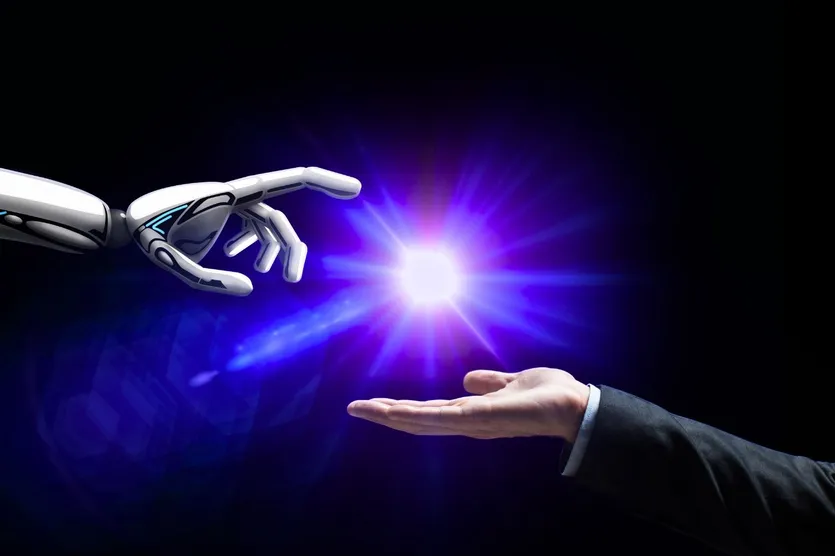
In training, man-made intelligence is helping understudies in customized learning and giving information-driven experiences to teachers.
In the media, computer-based intelligence is utilized for content curation, proposal frameworks, and in any event, producing news stories.
In client care, simulated intelligence-fueled menial helpers are further developing client experience and smoothing out help processes.
The Possessions of Artificial Intelligence (AI) in Society
While AI presents enormous opportunities, it also raises concerns.
How computer-based intelligence will change work is a squeezing question, as computer-based intelligence-fueled robotization might influence the work market and require reskilling and upskilling for laborers.
Protection gambles are another worry, as artificial intelligence frameworks depend on immense measures of individual information to work.
Finding some kind of harmony between the advantages of man-made intelligence and tending to these worries is fundamental for cultural advancement.
Preparing for the Future of AI
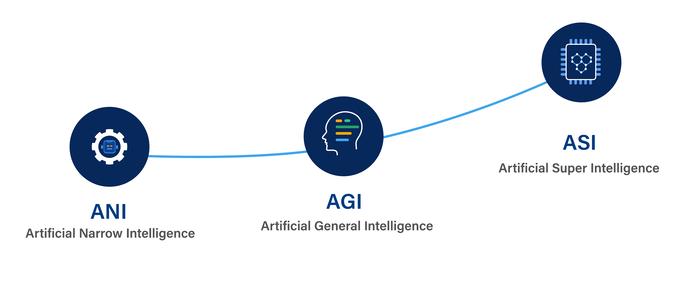
As Artificial intelligence (also called ANI, the acronym for narrow AI) progresses, it is vital to investigate the potential outcomes of Counterfeit General Insight (AGI).
AGI alludes to simulated intelligence frameworks that have human-level knowledge and can play out any educated undertaking that an individual can do.
While AGI holds huge potential, there are banters on whether it represents a danger to mankind or can be bridled to improve society.
The Potentials of Artificial General Intelligence (AGI)
While Artificial General intelligence frameworks are task-explicit, there is a continuous examination and hypothesis about Counterfeit General Knowledge (AGI), which alludes to computer-based intelligence frameworks that can comprehend, learn, and play out any intelligent undertaking that an individual can do.
AGI would have a similar degree of general insight as people, while perhaps not more. The advancement of AGI raises worries about its expected effect on humankind.
Is AGI a Threat to Humanity?
The utilization of AGI will rely upon cultural qualities, guidelines, and capable advancement rehearses.
Numerous fields, including healthcare, climate change mitigation, and scientific research, stand to benefit greatly from AGI.
Nonetheless, its utilization should be directed by moral contemplations and guarantee that the advantages are conveyed fairly.
Conclusion
All in all, although Artificial Intelligence (computer-based intelligence) can fundamentally affect different businesses, it doesn’t show up logically that Artificial Intelligence will robotize undertakings that are presently performed by people at any point shortly.
Sympathy, decisive reasoning, and creativity are only a couple of the novel qualities that recognize people from machines.
In any case, the heading of PC-based knowledge improvement proposes continued advancement, introducing new positions opening entryways, and reshaping work.
This still can’t seem to be tended to Can Artificial Intelligence Replace Human Intelligence?
As PC-based insight propels, individuals and society need to prepare for the future, ensuring prosperity measures, keeping an eye on moral concerns, and handling the possible results of phony general information to help humanity.
Discovering some sort of agreement between the limits of man-made brainpower and the basic pieces of human information is basic to investigating the scene.
*Attribution*



